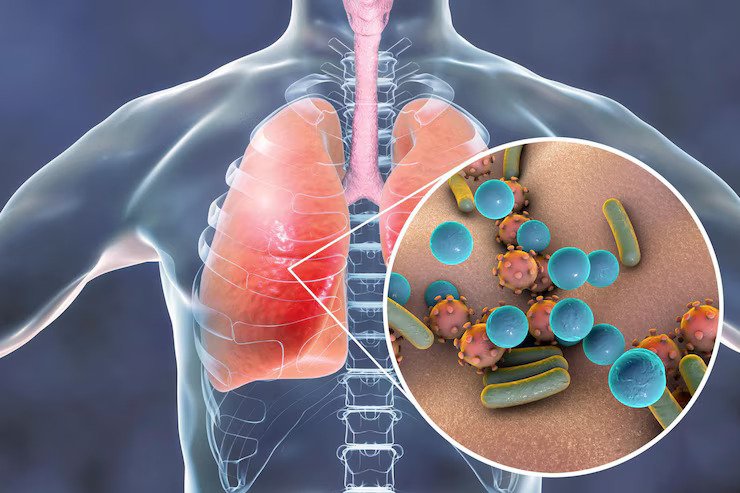Home / Tuberculosis and Complications
Tuberculosis (TB) is a contagious bacterial infection caused by Mycobacterium tuberculosis. It primarily affects the lungs (pulmonary TB), but it can also spread to other parts of the body (extrapulmonary TB). While TB is curable and preventable, untreated or poorly managed TB can lead to various complications.
Drug-Resistant TB: Some strains of TB bacteria may develop resistance to the antibiotics commonly used to treat TB, leading to drug-resistant TB. This can occur due to improper treatment, incomplete treatment courses, or exposure to drug-resistant strains.
Extrapulmonary TB: TB can affect other organs and tissues besides the lungs, including the kidneys, bones, lymph nodes, and brain. Extrapulmonary TB may cause symptoms specific to the affected organ, such as urinary symptoms in renal TB or neurological symptoms in TB meningitis.
Miliary TB: Miliary TB is a severe form of TB in which the bacteria spread through the bloodstream, causing tiny TB lesions to develop throughout the body. This can lead to widespread symptoms such as fever, weight loss, and organ dysfunction.
Pleural Effusion: Pulmonary TB may lead to the accumulation of fluid in the pleural space (the space between the lungs and the chest wall), resulting in pleural effusion. This can cause chest pain, difficulty breathing, and coughing.
Tuberculosis Meningitis: TB meningitis is a rare but serious complication in which the bacteria infect the membranes surrounding the brain and spinal cord. It can cause symptoms such as headache, fever, confusion, and neurological deficits.
Pulmonary Complications: Chronic or untreated pulmonary TB can lead to complications such as bronchiectasis (damage to the airways), fibrosis (scarring of lung tissue), and respiratory failure.

Spread of Infection: If left untreated, TB can spread to others through respiratory droplets, leading to new cases of TB in close contacts.
Early diagnosis, prompt treatment with appropriate antibiotics, and adherence to treatment regimens are essential for preventing complications and reducing the spread of TB. Additionally, vaccination with the Bacillus Calmette-Guérin (BCG) vaccine can help prevent severe forms of TB in children.
 Call Now Button
Call Now Button